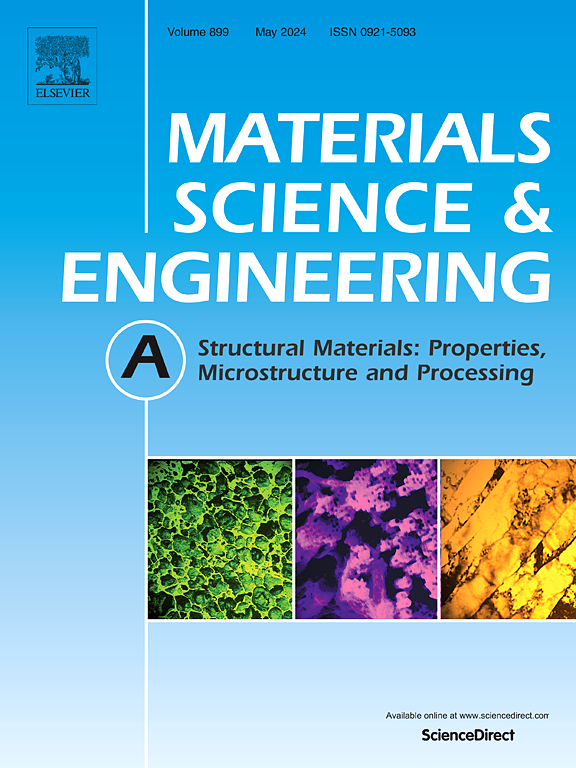Implementation of miniature tensile specimens in mechanical properties assessment of directed energy deposited Ti-6Al-4V: As-built and heat treated
IF 6.1
2区 材料科学
Q1 MATERIALS SCIENCE, MULTIDISCIPLINARY
引用次数: 0
Abstract
Within the last two decades, additive manufacturing (AM), a. k.a. 3D printing, has provided promising solutions for producing near-net-shape components with intricate geometries. From the material perspective, titanium alloys, one of humankind's most essential structural materials, are being considered the first candidate for AMed parts due to their unique characteristics in strength-weight-corrosion combinations. However, measuring the mechanical properties of designed geometry remains a challenge due to the ineffectiveness of conventional standard tensile specimens in assessing the site-specific and intricate geometries. In AM, the current approach often consists of evaluating standard-sized samples with the assumption that components with complex geometries possess comparable mechanical properties, even though they may have undergone different thermal processes in various situations. Hence, combining the microstructural characterization, this study aims to investigate the mechanical properties of direct energy deposition (DED) Ti-6Al-4V through a newly designed miniature tensile test (M-TT) specimen. The as-built specimen showed ultimate tensile strength (UTS) of ∼1305.3 MPa and elongation of ∼8.6 % with the mixed basketweave and α-colony microstructure. However, the DED Ti-6Al-4V specimen heat-treated at 850 °C exhibited the highest average elongation of ∼13.2 % and decent UTS of ∼1240.3 MPa with the α+β microstructure.
定向能沉积Ti-6Al-4V微拉伸试样力学性能评估的实现:预制和热处理
在过去的二十年里,增材制造(AM),也就是3D打印,为生产具有复杂几何形状的近净形状部件提供了有前途的解决方案。从材料的角度来看,钛合金作为人类最重要的结构材料之一,由于其在强度-重量-腐蚀组合方面的独特特性,被认为是AMed部件的首选候选材料。然而,测量设计几何形状的力学性能仍然是一个挑战,因为传统的标准拉伸试样在评估特定地点和复杂几何形状时无效。在增材制造中,目前的方法通常包括评估标准尺寸的样品,并假设具有复杂几何形状的部件具有可比的机械性能,即使它们可能在各种情况下经历了不同的热过程。因此,结合微观组织表征,本研究旨在通过新设计的微型拉伸试验(M-TT)试样,研究直接能沉积(DED) Ti-6Al-4V的力学性能。建成后的试样的极限抗拉强度(UTS)为~ 1305.3 MPa,伸长率为~ 8.6%,具有混合篮织和α-集落微观结构。然而,经过850℃热处理的DED Ti-6Al-4V试样显示出最高的平均伸长率为~ 13.2%,UTS为~ 1240.3 MPa,具有α+β组织。
本文章由计算机程序翻译,如有差异,请以英文原文为准。
求助全文
约1分钟内获得全文
求助全文
来源期刊

Materials Science and Engineering: A
工程技术-材料科学:综合
CiteScore
11.50
自引率
15.60%
发文量
1811
审稿时长
31 days
期刊介绍:
Materials Science and Engineering A provides an international medium for the publication of theoretical and experimental studies related to the load-bearing capacity of materials as influenced by their basic properties, processing history, microstructure and operating environment. Appropriate submissions to Materials Science and Engineering A should include scientific and/or engineering factors which affect the microstructure - strength relationships of materials and report the changes to mechanical behavior.
 求助内容:
求助内容: 应助结果提醒方式:
应助结果提醒方式:


